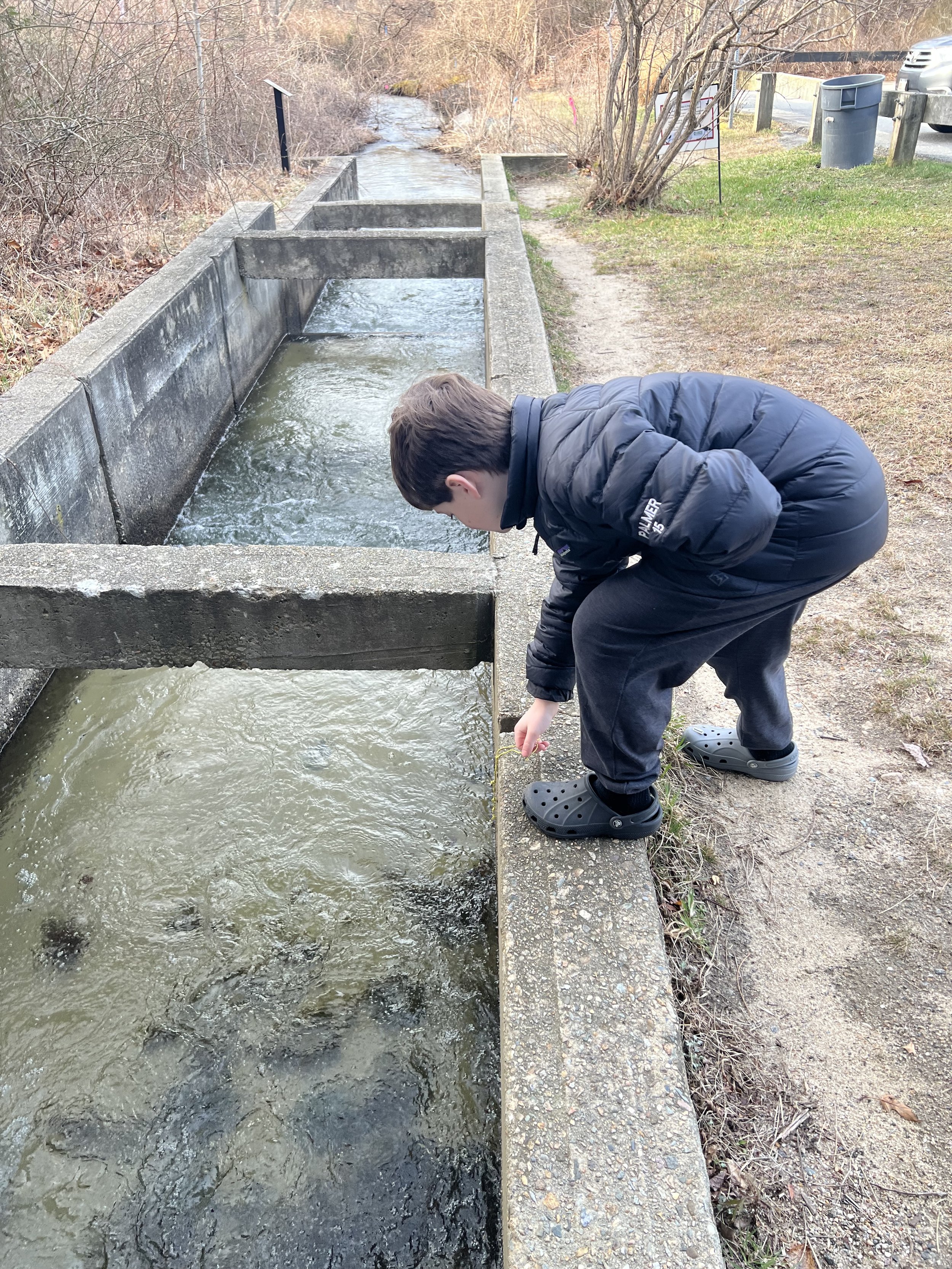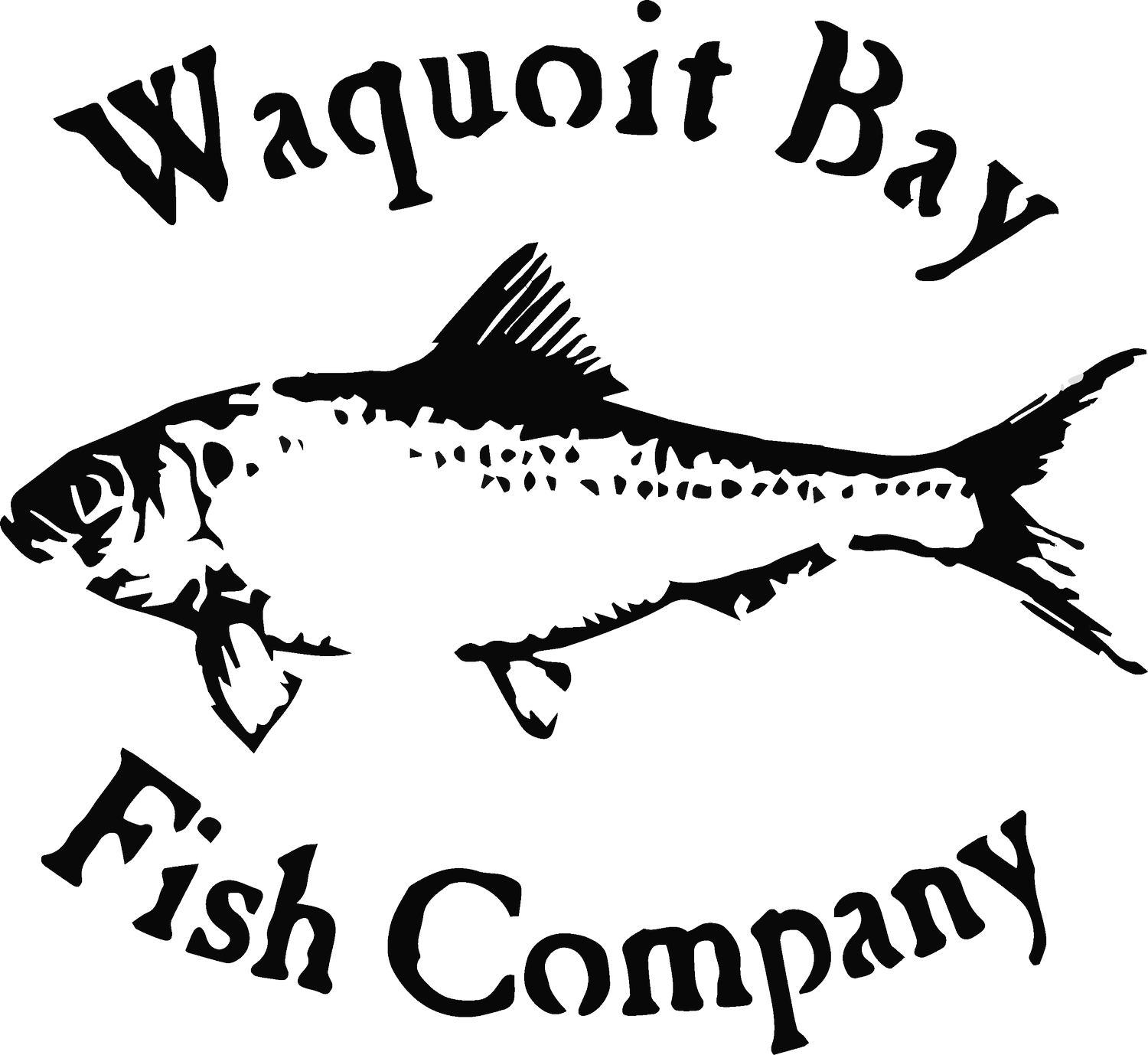Art. Life. Place. - A Blog

Out Back, Once More
The “out back” behind my childhood home was where I first felt the quiet pull of nature. Long before I became a scientist, I was just a kid chasing frogs, listening to the murmur of brooks, and learning to see the world through a lens of curiosity and wonder. My first career took me into the vastness of marine systems, but it’s the closeness—the intimacy—of those early freshwater places that never let go. Now, I find myself coming full circle, drawn once again to the quiet magic of backyard streams and wetlands, and watching my own kids uncover wild corners of their own. We all need an “out back”—a place to roam freely, without agenda, where the natural world speaks in its own rhythm. It’s in those unhurried, openhearted moments that a lifelong connection to nature takes root.

Unraveling the Secrets of the Salter: Tracking Brook Trout on the Quashnet River
Once reshaped by cranberry farming, the Quashnet River has rebounded over the past 50 years into a thriving Brook Trout habitat. To study these elusive fish, scientists use PIT tagging—tiny microchips that track movements without recapture. The data collected is now showcased in an interactive dashboard, providing insights into trout migrations and habitat use. This research reveals the secrets of "salter" trout and highlights the need to protect both freshwater and estuarine habitats. The Quashnet’s recovery is a testament to resilience, science, and community dedication.

Salters: Reclaiming Cape Cod
Cape Cod’s sea-run Brook Trout, or "salters," are making a remarkable comeback after centuries of decline, thanks to dedicated conservation and restoration efforts. These migratory fish once thrived in the region’s cold, spring-fed streams but faced significant habitat loss due to water-powered mills, agricultural development, and infrastructure changes that disrupted their migration routes. The restoration of Cape Cod’s rivers and streams—removing barriers, restoring wetlands, and reestablishing natural flow—has revitalized these habitats, allowing salters and other species to thrive once again. Beyond being a success for Brook Trout, these efforts also benefit entire ecosystems, improving water quality, supporting biodiversity, and providing vital resources for local communities. Despite ongoing challenges, communities across Cape Cod are committed to safeguarding these vital waterways, ensuring that future generations can enjoy the beauty and ecological richness of restored coldwater streams.

Life Lessons from a River Herring Run
Each spring, when the river herring return, the water comes alive with flickers of silver scales. It’s at these runs that I bring my children, not just to watch, but to learn about the rhythms of nature. My father nurtured my love for the outdoors, teaching me to fish and introducing me to the birds and the trees, sparking my curiosity and shaping my career as a scientist. Now, as a father, I aim to pass those same lessons on to my children. Over the years, I’ve encouraged them to get involved, counting fish and contributing to conservation efforts. These visits show my children that nature is not separate from us—it’s a part of who we are, and our actions matter. I hope they carry these lessons with them, remembering the wonder and responsibility of being part of something bigger, and that they’ll protect it as they grow.

River Herring Conservation Starts with You
Each year, millions of river herring swim up Cape Cod’s rivers and streams to spawn, playing a vital role in local ecosystems. Volunteers are crucial to monitoring their migration and ensuring their continued presence on the Cape. By volunteering as a herring counter, you help track these important fish, supporting conservation efforts that protect wildlife and ecosystems. Volunteers count herring at designated sites, with training and support provided. This is a rewarding opportunity to make a difference, learn about nature, and enjoy the outdoors. Sign up today to help protect the future of herring and Cape Cod’s rivers.
